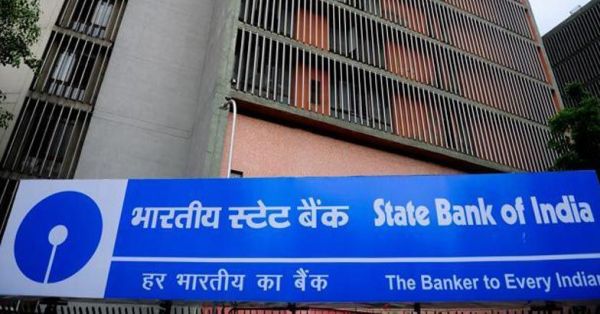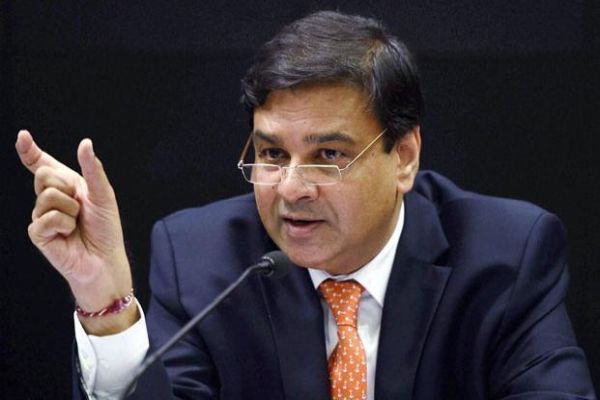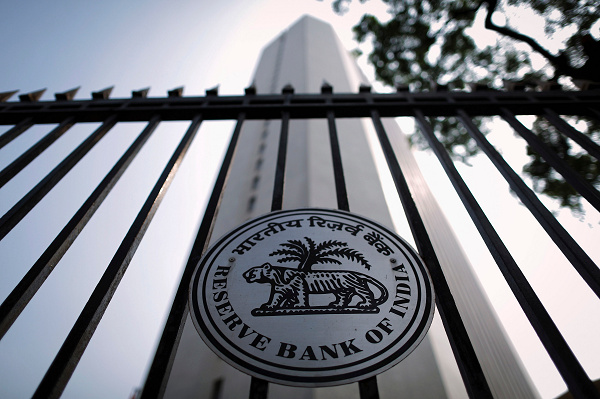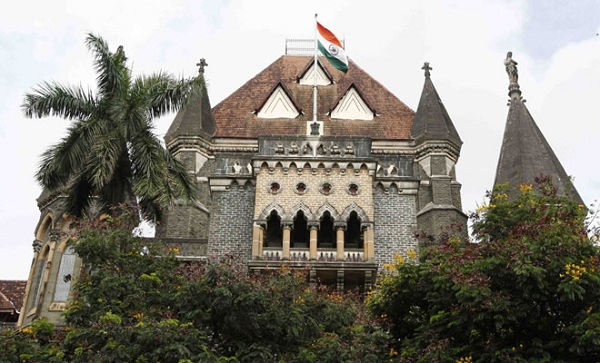
by admin | May 25, 2021 | Business, Medium Enterprise, SMEs
 New Delhi : The RBI’s decision to discontinue the Letters of Undertaking (LoUs) or Letters of Comfort (LoC) might increase the credit cost for imports as it will lead to a shift towards “other off-balance sheet” products, said a State Bank of India (SBI) report on Friday.
New Delhi : The RBI’s decision to discontinue the Letters of Undertaking (LoUs) or Letters of Comfort (LoC) might increase the credit cost for imports as it will lead to a shift towards “other off-balance sheet” products, said a State Bank of India (SBI) report on Friday.
According to SBI Ecowrap report, the shift to “other off-balance sheet” products will be “administratively time consuming” and in the short-term might impact export funding as well.
On March 13, RBI decided to discontinue the system in the wake of the Rs 12,600 crore fraud at the state-run Punjab National Bank (PNB).
“Banning LoUs/LoCs might lead to shifting to other off balance sheet products — LCs, Bank Guarantees, other fund based facilities or on to balance sheet,” the SBI Ecowrap report said.
“We, however, believe the shift to other off balance sheet products if occurs, will be administratively time consuming. However capital charge may vary for different products leading to changes in capital requirements in either direction depending on the product used and associated risk.”
Earlier, banks were permitted to issue guarantee/LoU/LoC in favour of overseas supplier, bank or financial institution up to $20 million per import transaction under the automatic route for a maximum period up to one year in case of import of non-capital goods.
As per the latest available RBI data, guarantees given on behalf of constituents outside India stood at Rs 1.95 lakh crore as on March 31, 2017.
—IANS

by admin | May 25, 2021 | Corporate, Corporate Governance

Urjit Patel
New Delhi : Breaking his silence over the Rs 13,540 crore fraud at state-run Punjab National Bank (PNB), the Reserve Bank of India (RBI) Governor Urjit Patel on Wednesday said the central bank, as the guard of people’s deposits at banks, will do its best to break the “unholy nexus”.
“I have chosen to speak today to convey that we at the RBI also feel the anger, hurt and pain at the banking sector frauds and irregularities. In plain simple English, these practices amount to a looting of our country’s future by some in the business community, in cahoots with some lenders,” Patel said while delivering a lecture at the Gujarat National Law University.
“As safeguards of your deposits at banks, and starting with the Asset Quality Review of banks announced by the Reserve Bank in 2015 — since ably conducted by our supervisory teams and as acknowledged objectively by experts of reputed multilateral agencies, we are doing all we can to break this unholy nexus,” he said.
Expressing deep anguish over the frauds in public sector banks (PSBs), Patel said the RBI will do its duty and even consume the poison and face brickbats.
“If we need to face the brickbats and be the Neelakantha consuming this poison, we will do so as our duty; we will persist with our endeavours and get better with each trial and tribulation along the way,” Patel said.
—IANS

by admin | May 25, 2021 | Banking, Economy, Markets, News
 Mumbai : The RBI on Thursday said it had imposed a penalty of Rs 10 lakh on Equitas Small Finance Bank for failing to comply with a licensing condition of obtaining prior approval from the central bank for certain actions.
Mumbai : The RBI on Thursday said it had imposed a penalty of Rs 10 lakh on Equitas Small Finance Bank for failing to comply with a licensing condition of obtaining prior approval from the central bank for certain actions.
The licensing conditions are stipulated by the Reserve Bank of India (RBI) at the time of issuing the banking licence.
“The bank reported having undertaken the activity of rolling out mutual fund units, pension and insurance products and portfolio management services without obtaining the prior approval of RBI,” the central bank said in a statement.
On January 18, 2018, the RBI had issued a notice to the bank and “after considering the bank’s reply and oral submissions, RBI came to the conclusion that the aforesaid charge warranted imposition of monetary penalty,” it said.
“This action is based on deficiencies in regulatory compliance and is not intended to pronounce upon the validity of any transaction or agreement entered into by the bank with its customers,” the RBI added.
—IANS

by admin | May 25, 2021 | Finance, News

Bombay High Court
By Quaid Najmi,
Mumbai : A public interest litigation — probably holding the key to the historic demonetisation of November 8, 2016 — filed by RTI activist Manoranjan Roy will finally come up for hearing at Bombay High Court here on February 12.
The PIL was filed in 2015, on the basis of RTI replies received from the Reserve Bank of India (RBI) and other institutions, pertaining to large quantities of “missing or excess” Indian currency notes.
Roy said that as per RTI replies, from 2000 to 2011, RBI had received a certain number of currency notes from the three security printing presses in Nashik, Dewas and Mysuru.
The figures provided by the printing presses were: Rs 500 denomination — 19,45,40,00,000 pieces were sent to RBI, but RBI said it had received only 18,98,46,84,000 pieces: A shortfall of 46,93,16,000 pieces or Rs 23,465 crore.
Similarly, the printing presses said they had sent Rs 1,000 denomination 4,44,13,00,000 pieces, but the RBI said it had received 4,45,30,00,000 pieces: An excess of 1,17,00,000 pieces or Rs 1,170 crore.
In another RTI data for 2000-2011, from the Bharatiya Reserve Bank Note Mudran Pvt. Ltd. said it had sent 13,35,60,00,000 pieces of Rs 500 denomination and 3,35,48,60,000 pieces of Rs 1,000 denomination, but, mysteriously, the RBI apparently never received these currency notes, nor did it disclose details of the same, said Roy.
“How such entirely misleading figures were given by three different and highly responsible government institutions, who are the culprits indulging in the misappropriation, where the staggering amounts of currency notes printed are actually going, are some of the questions that arise, and the answers may come out when my petition is finally heard,” Roy said.
In the petition, Roy had named the Prime Minister, the Finance Minister and the Ministry of Home Affairs, as parties.
However, at one of the early hearings, then Additional Solicitor-General of India, Anil Singh, submitted an affidavit to Roy on January 27, 2016, asking him to delete the names of the PM, FM and MHA.
The affidavit was executed and signed by one Ashish Avinashi, identified as the (then) Deputy HR Manager of Security Printing Minting Corporation of India Ltd. (SPMCIL), Mumbai.
Strangely, this affidavit was not tendered before the Bombay High Court when a division bench comprising Justice V.M. Kanade and Justice Revati Mohite-Dere was hearing the matter, he said.
“The court also deleted the three names of PM, FM and MHA without referring to the affidavit and issued notices to the other parties concerned,” Roy contended.
Undeterred, he filed another RTI query seeking details of the affidavit’s signatory from the SPMCIL and a shocking truth emerged.
“The signatory, Ashish Avinashi, had no authority to sign such an affidavit, since a person from the HR department was not the competent person for this purpose,” Roy said.
Roy’s lawyer, Shashikant Chaudhari, said the case went to a bench of Justice Abhay Oka and Justice Prakash Naik on March 29, 2016, with subsequent dates of April 11, 2016, and then listed as a fresh matter on June 17, 2016.
On April 11, 2016, the RBI’s lawyer Nikhil Chandani argued that Roy’s petition was “frivolous” and there was no need to file a reply to it.
Justice Oka and Justice Naik accepted the argument and asked Roy to restrict himself strictly to the prayers, failing which the court would impose heavy costs, and adjourned it to June 24, 2016.
That day, the court sought to know “where is the petitioner” when Chaudhari tried to argue the matter on behalf of Roy, and said it had gone through the entire petition minutely and felt it was “a frivolous PIL”.
Chaudhari sought time till July 1, 2016, which was granted with specific instructions to the petitioner to withdraw the PIL or face heavy costs.
However, Chaudhari said, at the last minute, the matter was transferred to another bench and, subsequently, Justice V.M. Kanade and Justice Swapna S. Joshi disposed it off on August 23, 2016, “without proper scrutiny”.
On September 22, 2016, Roy filed a Review Petition (No. 5/2016) and the matter remained alive, and now this review plea will come up for hearing next Monday, Chaudhari said.
Meanwhile, barely within 75 days of the petition getting disposed off (August 23, 2016), Prime Minister Narendra Modi announced demonetisation of the Rs 500 and Rs 1,000 denominations, on November 8, 2016, the lawyer said.
The government move was made on various grounds like unearthing black money and fighting terrorism, but the entire matter pertaining to misappropriation of large quantities of Indian currency notes, as available under RTI, was sidelined, Roy claimed.
(Quaid Najmi can be contacted at q.najmi@ians.in)
—IANS

by admin | May 25, 2021 | Banking, Economy, Markets, News
 New Delhi : Continuing rise in food and fuel prices pushed India’s annual retail inflation rate over the five per cent-mark in December, official data showed on Friday, putting paid to hopes of an interest rate cut by the RBI in the near future.
New Delhi : Continuing rise in food and fuel prices pushed India’s annual retail inflation rate over the five per cent-mark in December, official data showed on Friday, putting paid to hopes of an interest rate cut by the RBI in the near future.
According to the data furnished by the Ministry of Statistics and Programme Implementation, December’s consumer price index (CPI) inflation rose to 5.21 per cent from 4.88 per cent in November.
On a year-on-year (YoY) basis, the CPI inflation last month was higher than the 3.41 per cent recorded in December 2016.
The Consumer food price index (CFPI) in December stood at 4.96 per cent compared to the 4.42 per cent of November 2017.
The annual CPI in rural areas in December ruled higher at 5.27 per cent, while in urban India it rose by 5.09 per cent.
Retail inflation on a YoY basis edged higher due to a rise in the prices of food items like vegetables, milk-based products, eggs, meat and fish.
The data showed that vegetables in December became costly by a whopping 29.13 per cent, while prices of milk-based products rose by 4.37 per cent.
Other notable categories such as cereals became dearer by 2.57 per cent and meat and fish recorded a rise of 4.22 per cent.
The sub-category of food and beverages during the month under consideration recorded a rise of 4.85 per cent over the same period last year.
Among non-food categories, the “fuel and light” segment’s inflation rate accelerated to 7.9 per cent in October.
Earlier this month, Finance Minister had told Parliament that the inflation had increased owing to a seasonal rise in vegetable prices and the higher house rent allowances disbursed to government employees under the 7th Pay Commission recommendations.
Inflationary risks forced the Reserve Bank of India (RBI) to hold its key lending rate unchanged for the third time in a succession at 6 per cent in its penultimate bi-monthly monetary policy review of the fiscal last month.
Announcing the decision of the monetary policy committee (MPC), the RBI said inflation is expected to range around 4.3-4.7 per cent in the second half of the fiscal, including the impact of increase in house rent allowance.
The central bank said “two of the key factors determining the cost of living conditions and inflation expectations — food and fuel inflation — edged up in November”.
“The decision of the MPC is consistent with a neutral stance of monetary policy in consonance with the objective of achieving the medium-term target for consumer price index inflation of 4 per cent within a band of +/- 2 per cent, while supporting growth,” an RBI statement said.
—IANS

 New Delhi : The RBI’s decision to discontinue the Letters of Undertaking (LoUs) or Letters of Comfort (LoC) might increase the credit cost for imports as it will lead to a shift towards “other off-balance sheet” products, said a State Bank of India (SBI) report on Friday.
New Delhi : The RBI’s decision to discontinue the Letters of Undertaking (LoUs) or Letters of Comfort (LoC) might increase the credit cost for imports as it will lead to a shift towards “other off-balance sheet” products, said a State Bank of India (SBI) report on Friday.


